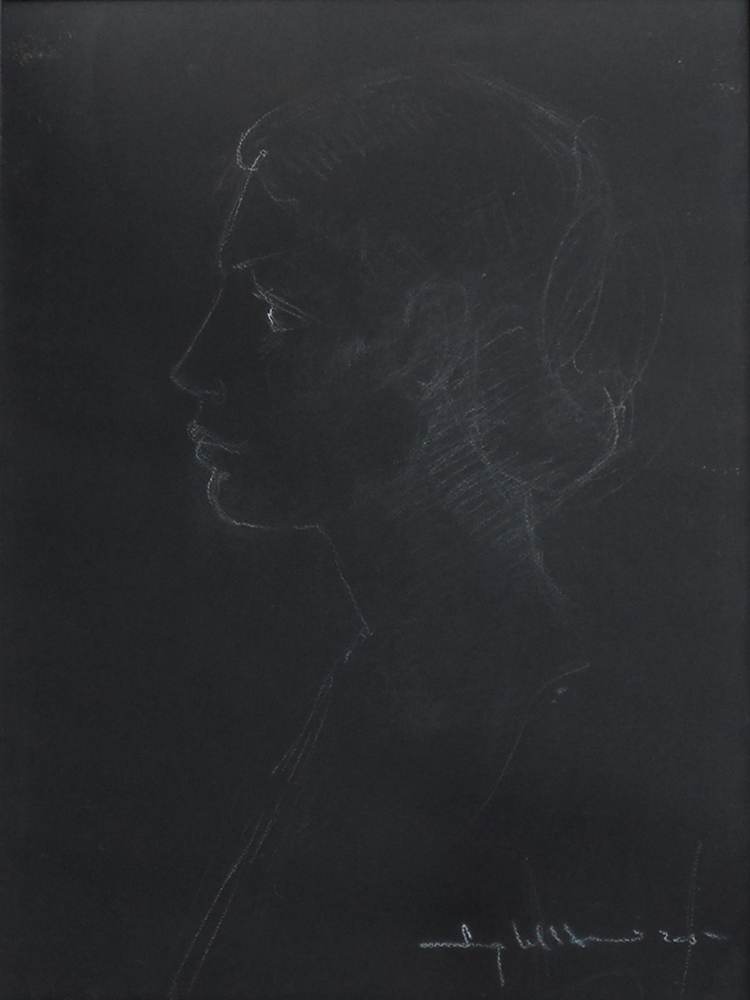
Artwork by Iqbal Hussain. Image Courtesy: ArtChowk Gallery
by Murali Kamma
The woman who met me at the entrance of Mission Valley School, my alma mater in India, seemed to know me. But I didn’t recognize her.
“You were in the American boy’s class, weren’t you?†she said, even before I could introduce myself. “We called him AB.â€
“Arun Brown?â€
She giggled. “Yes. AB stood for American Boy more than Arun Brown, so I couldn’t remember his name. He was here last week, visiting from America.â€
“Really? I’m sorry I missed him.â€
Earlier that morning, after checking out of my hotel in the district capital, where I’d attended a wedding, I caught a taxi that took me along a winding and rising mountain road, over which hung a gently rolling canopy of mist. When we reached the town, which was crowded and traffic-clogged, the landmarks had changed so much—with new buildings everywhere in a chaotic jumble of concrete—that I got confused and we missed a turn. Then I saw Mission Valley School, perched on a hill. We swung around and went up a narrow road, now fully paved and skirted by eucalyptus and pine trees that had thinned over the years, giving the campus less seclusion. But the heady scent in the crisp air was still the same, beckoning me like a long-lost friend.
The mention of Arun Brown took me back a quarter-century.
It was on the steps of this entrance that I’d first seen him through the bay window of our classroom. Like Arun, I was 17 that year. I was thinking about dinner that evening, impatiently waiting for our study hour to end, when I heard an excited announcement in the classroom: “The American boy is here!â€
We rushed to the window for a better look. Craning my neck, I saw Ahmed’s rickety taxi wheeze up the sloping driveway, trailing a cloud of red dust in the fading light. At the entrance, where the lights had just sprung to life, a sari-clad woman and a tall boy, with curly hair and sporting a navy-blue blazer, emerged from the black-and-yellow Ambassador and walked up the steps, followed by Ahmed, who carried two suitcases.
In the silence that followed, the disappointment in our classroom was palpable. Most of us had expected to see a fair-complexioned, blond-haired, blue-eyed boy. Instead, here was somebody who looked like us! “He is American?†Mohan said, his voice ringing with incredulity. “This must be a different boy.â€
That’s how I felt, but another student who seemed to know better insisted that it was indeed the American boy. The dinner bell rang, shifting our attention to more urgent matters.
Arun Brown wasn’t in the dining hall—apparently he and his mother had returned to their hotel for another night—but there was much talk about him. Yes, he had grown up in America. Who was his father? An African American, apparently, though we used a different label back then, unaware—until our dorm master corrected us the following morning—that the word was offensive, not just outdated. Arun’s divorced Indian mother had returned to India with Arun and was now teaching at a college. The only Americans I’d seen so far were the white tourists who passed through our town. Like the other students at my table, I could hardly wait to meet Arun the next day.
In my final term at Mission Valley, before our class scattered to tentatively begin our adulthood in various places, Arun breezed into our lives like an unexpected yet welcome guest. It was one of those years that divide your life into before and after.
When Arun joined our class that morning, it was still early in the year, with a cold snap that would last another two months, and we had little inkling of what lay ahead. It was an English class and we were reading, oddly enough, “The Road Not Taken†by Robert Frost. Arun walked in with our principal, who interrupted the class with a brief introduction and asked Arun to take the empty desk between Mohan’s and mine. If the three of us hadn’t been sitting together, I’m sure we wouldn’t have become close friends.
Looking back, I realize Arun came to our school probably because the principal didn’t mind that, unlike us, Arun wouldn’t be taking the all-India board exam at the end of the term. And in fact, he did go back to America to finish high school. The months Arun spent with us might have been a sabbatical of sorts for him, but he fully immersed himself in our academic and extracurricular activities. Well built and taller than almost any other boy, he quickly made friends with his genial, outgoing personality. His American background made him exotic and popular at our school. Some people, especially the kitchen staff and dorm ayahs, simply called him American Boy. Eventually, his nickname became AB.




